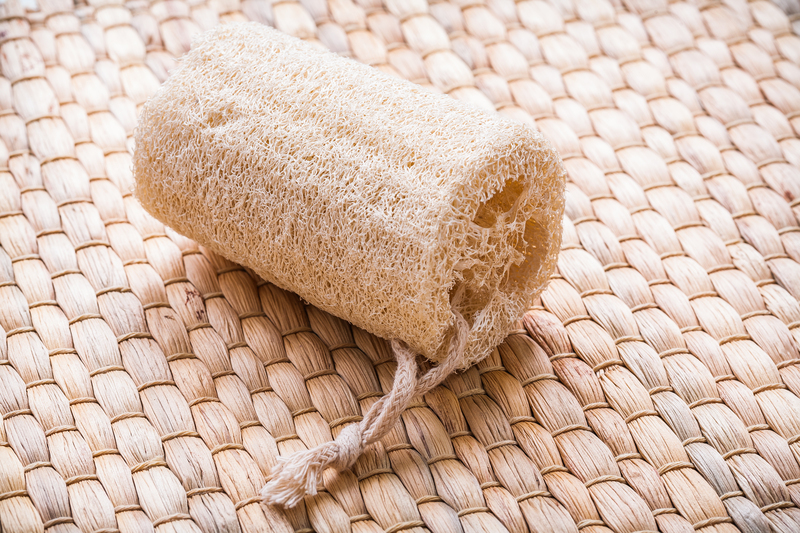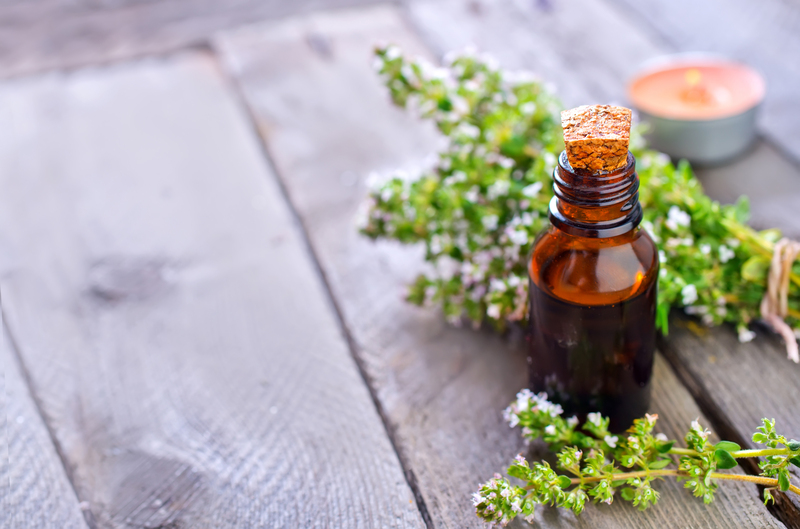Jewellery Cleaning Tips to Preserve Elegance and Beauty
Posted on 21/08/2025
Jewellery Cleaning Tips to Preserve Elegance and Beauty
Jewellery is more than just an accessory; it is a symbol of sophistication, elegance, and cherished memories. From a glimmering diamond engagement ring to a family heirloom necklace, each piece holds sentimental and intrinsic value. However, without proper care and attention, even the most exquisite jewels can lose their sparkle and allure over time. By following tried-and-tested jewellery cleaning techniques, you can ensure your precious items continue to shine and retain their original beauty for generations. In this comprehensive article, we explore the best jewelry cleaning tips, methods, and maintenance advice to safeguard your treasures.

Why Is Jewellery Cleaning Important?
Avoiding regular cleaning can lead to a buildup of dirt, oils, and grime that dulls the brilliance of your gemstones and metals. Not only does accumulated residue impact the appearance of your pieces, but it can also damage the structural integrity of settings, clasps, and chains.
- Enhances Shine and Brilliance: Periodic cleaning restores the lustre and sparkle of your gems and metals.
- Increases Longevity: Routine maintenance reduces the risk of corrosion, tarnishing, and wear.
- Protects Sentimental Value: Pristine jewellery preserves family legacies and sentimental stories.
- Maintains Hygiene: Removing oils and dirt prevents skin irritation and bacterial build-up.
Essential Tools for Jewellery Cleaning
Preserving the elegance and sophistication of your jewelry requires the right tools and supplies. Here are some basics you should have on hand:
- Soft-bristled Toothbrush: Ideal for scrubbing intricate settings and hard-to-reach areas.
- Mild Dish Soap: Gently breaks down oils and grime without harming metals or stones.
- Microfiber Cloth: Lint-free and gentle, perfect for drying and buffing jewelry.
- Warm Water: Helps to loosen debris and wash away cleaning solutions.
- Jewellery Polishing Cloth: Special cloths designed to clean and protect various metals.
- Non-Abrasive Cleaners: Always opt for cleaners suited for the specific type of jewelry you own.
How to Clean Jewellery at Home: Step-by-Step Guide
Jewellery cleaning at home doesn't have to be complicated. With the right approach, you can keep your most cherished pieces gleaming like new. Here's a proven step-by-step process to follow:
1. Separate Your Jewellery by Type
Before starting, sort your jewellery by material--gold, silver, platinum, gemstones, pearls, and costume jewellery--since each requires specific care.
2. Prepare a Gentle Solution
- Mix a few drops of mild dish soap with warm water in a bowl.
- Avoid harsh chemicals like bleach, acetone, or ammonia, especially for delicate stones and metals.
3. Soak and Clean
- Place jewelry in the soapy solution for 15-20 minutes.
- Gently scrub with a soft-bristled brush, focusing on crevices.
- Be extremely gentle with fragile settings to prevent looseness or damage.
4. Rinse Thoroughly
- Rinse each piece under lukewarm running water to remove all residue.
- Be sure to cover your drain with a strainer to avoid losing small pieces.
5. Dry and Polish
- Pat dry using a microfiber or lint-free cloth.
- Allow pieces to air dry fully before storing to prevent moisture buildup.
- Finish by polishing with a jewelry cloth for a final radiant shine.
Jewellery Cleaning Tips for Specific Materials
Different types of jewelry require tailored cleaning routines to maintain their unique elegance:
Gold Jewellery
- Gold is relatively soft, so avoid rough handling or abrasive materials.
- Polish with a soft cloth, and use a gentle foaming soap for deeper cleaning.
- Limit exposure to lotions, perfumes, and harsh chemicals that can tarnish gold surfaces.
Silver Jewellery
- Silver tarnishes quickly; use a special silver cloth or non-abrasive silver cleaner.
- To remove stubborn tarnish, create a paste with baking soda and water, rub gently, rinse, and dry.
- Store silver pieces in anti-tarnish bags or cloth-lined boxes.
Gemstone and Diamond Jewellery
- Diamonds are hardy, but settings can be delicate--avoid hard impacts and inspect prongs regularly.
- Do not use ultrasonic cleaners for stones that are treated or have inclusions.
- Use a soft brush with soapy water, focusing on the setting to remove trapped debris.
Pearl Jewellery
- Pearls are organic and extremely sensitive to chemicals and moisture.
- Wipe pearls clean with a lint-free, barely damp cloth after every wear.
- Avoid soaking pearls or exposing them to perfume or hairspray.
Costume and Fashion Jewellery
- Fashion jewelry often uses base metals and glued stones--avoid submerging in water.
- Clean with a dry, soft cloth, and use a damp cloth only for stubborn spots.
- Don't use harsh chemicals or ultrasonic cleaners, which may loosen glue or damage finishes.
Jewellery Cleaning Techniques: Tools and Methods Explored
Modern jewelry care has evolved, offering various professional cleaning tools and jewellery cleaning methods:
Ultrasonic Cleaners
Using ultrasonic waves, these devices dislodge stubborn dirt and grease. However, they aren't suitable for all stones, especially treated gems and pearls. Always check manufacturer recommendations.
Jewellery Steam Cleaners
These machines deliver bursts of pressurized steam to clean and sanitize. They work wonders on metals and hard stones but should be avoided for fragile or glued pieces.
Professional Cleaning Services
If you have intricate, valuable, or antique jewelry, consider entrusting your treasures to a professional jeweler. They can safely clean, inspect, and repair your items, often providing polishing and resizing services as well.
Simple DIY Jewellery Cleaning Hacks
Looking for quick and easy solutions between deep cleans? Try these DIY hacks for everyday jewelry maintenance:
- Baking Soda Paste: Safe for silver; mix with water into a paste, gently rub, then rinse and dry.
- Club Soda Soak: Refreshes diamonds and gold--soak overnight for a sparkling effect.
- Toothpaste Trick: For hard stones (never pearls!), a dab of toothpaste and a soft brush lifts grime.
- Vinegar Bath: For silver (not gemstones), soak in white vinegar for two hours to dissolve tarnish.
*Note: Always spot-test on a hidden area before applying homemade solutions to your entire piece.
Common Mistakes to Avoid When Cleaning Jewellery
Even with the best intentions, improper cleaning can cause damage. Make note of these common jewellery cleaning mistakes:
- Using Bleach, Acetone, or Strong Chemicals: These substances eat away at metals and stones; always avoid.
- Scrubbing Aggressively: Overzealous brushing can loosen stones or scratch metal surfaces.
- Soaking Delicate Pieces: Soft gems and pearls may absorb water or chemicals, ruining their beauty.
- Ultrasonic Overuse: Using ultrasonic cleaners on all jewelry indiscriminately can damage certain stones and settings.
- Neglecting Regular Inspections: Failing to check clasps, prongs, and settings for wear jeopardizes safe wear.
Jewellery Storage and Maintenance: Prolonging Life and Beauty
Proper storage and regular upkeep are crucial for preserving the elegance and value of your jewelry collection:
- Store Separately: Prevent scratches by keeping pieces in individual soft pouches or lined sections.
- Avoid Humidity: Use anti-tarnish strips and store in a dry area, away from direct sunlight or heat.
- Wear with Care: Take off jewelry before swimming, bathing, exercising, or using household cleaners.
- Schedule Annual Professional Cleaning: Let experts inspect and polish your most valuable pieces annually.

Frequently Asked Questions about Jewellery Cleaning
How often should I clean my jewellery?
The frequency of cleaning depends on how often you wear your pieces. Everyday items like wedding rings should be wiped down weekly and cleaned monthly. Special occasion pieces can be cleaned every few months.
Can I use household products to clean my jewellery?
Certain household items are safe for specific metals (e.g., baking soda for silver) but can harm others. Always research and avoid any harsh chemicals, especially on delicate gems or pearls.
Is professional cleaning necessary?
While home cleaning maintains everyday shine, professional cleaning and inspections ensure settings and stones remain secure and free from wear. Annual or biannual check-ups are wise for valuable items.
Can ultrasonic cleaners damage my jewellery?
Yes, especially on treated stones, soft gems, pearls, or pieces with glue. Consult jeweler guidelines before attempting.
What's the best way to store my jewellery?
Use individual pouches, anti-tarnish strips, and keep jewelry in a cool, dry environment away from sunlight and chemicals.
The Final Word: Preserving Your Jewellery's Timeless Elegance
With the right knowledge, tools, and commitment, jewellery cleaning and maintenance become enjoyable rituals, ensuring every necklace, bracelet, and ring in your collection remains a source of pride and joy. By adopting gentle cleaning habits, avoiding common pitfalls, and scheduling regular professional care, you'll preserve your jewelry's brilliance, structural integrity, and sentimental significance for decades to come.
Remember: A little care goes a long way in maintaining the elegance and beauty of your treasured jewelry. Start today, and let your jewels dazzle for many tomorrows!




